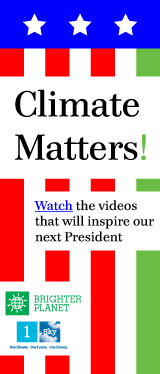Only days after my last post on this topic, another senior figure from the Khmer Rouge has been arrested and brought before the ECCC in Cambodia. Khieu Samphan, the former head of state under the Khmer Rouge, was arrested in hospital in Phnom Penh early this morning. He has always denied any responsibility for the brutality of his former regime, claiming his role was only ceremonial. Regardless of the truth or otherwise of this assertion, he was apparently very close to Pol Pot (who died in 1998) and as such he may be able to offer real insights into Pol Pot's character and actions.
The Cambodian Information Centre interviewed Khieu Samphan last week, prior to his arrest. You can read a transcript (translated from Khmer) here: http://www.cambodia.org/blogs/editorials/2007/11/interview-with-khieu-samphan-after-ieng.html (you may need to cut and paste into your browser). The CIC site is worth a browse anyway, if you are interested in finding out more about Cambodia.
Monday, November 19, 2007
Day Thirty-Nine: momentum in Khmer Rouge trial
Posted by
eazibee
at
9:52 AM
![]()
![]()
Subscribe to:
Post Comments (Atom)




















3 comments:
The Cambodian trials are necessary to demonstrate, to those who suffered and those who lost friends and family, that life should not be like this – and will not be again. The judicial process will locate more precisely the individual responsibility for Khmer Rouge crimes against humanity, but I doubt if they will solve one of the mysteries I find most troubling: how the ideas of an agrarian utopia, shaped in Paris seminars in the 1950s, could turn into the atrocities of the Killing Fields. It may be that Sabine Farms can only exist in Arcadia – once the dream hardens into reality, ideals are warped by contingency. W B Yeats thought it was to do with mystical cycles of history:
“Things fall apart; the centre cannot hold;
Mere anarchy is loosed upon the world,
The blood-dimmed tide is loosed, and everywhere
The ceremony of innocence is drowned.”
I really don’t know what it’s to do with, and I don’t think we’ll get to know from these trials, however necessary they may be.
Quite, Harry. I'd also like to think that we'd get some insight into the mind of someone who directs genocide - whether underpinned by Maoist ideologies and agrarian ideals or otherwise. Though quite what we would do with such insights I don't know - if we better understood and recognised the warning signs (as the global community did, arguably, in Rwanda in the 90s and does now in Darfur) would it make us any better equipped or willing to intervene?
That’s a great question. What is the relationship between human knowledge and the unfolding of history? Certainly Auden saw a disjunction between the arts and history: "No poem of mine saved any Jew from the gas-chamber". Is there a correlation, though, between intellectual awareness and the good life – or collective wisdom (= education) and social and international harmony? Are more “advanced” societies less prone to vicious and aggressive behaviour than less sophisticated societies? It sometimes seems that the history of civilization demonstrates that we have learned to kill people more efficiently. Education is a slow drip on the rocks of entrenched cultural mindsets and cognitive bias – things change slowly while we devise smarter ways to hate. Fundamentalism proliferates and cults of unreason are forever working to undermine stability.
That said, and even in the wake of 9/11, I still think we live in a less dangerous world than in the past. And it has to do with awareness, the awareness that a strong league of nations can have an impact on the way we live now. The UN – much derided and demeaned in some quarters – has made the world a safer place for millions. On the grand scale, hope for the future lies in a more central role for the UN. In personal terms, I like the old mantra: “hope for the best – expect the worst” (I wish it hadn’t been appropriated by Mel Brooks) or, in more Hardyesque language: “If a way to the better there be, it exacts a full look at the worst.” The worst is pretty grim, but there’s life in the wasteland. Noam Chomsky puts it well – like an updating of Pascal’s wager - “unless you believe that the future can be better you are unlikely to step up and take responsibility for making it so. If you assume there is no hope, you guarantee there will be no hope.” So, we keep on keeping on.
I’m not sure where the psychology of Pol Pot fits in here, except that having seen it once, we will be on the qui vive next time around.
Post a Comment